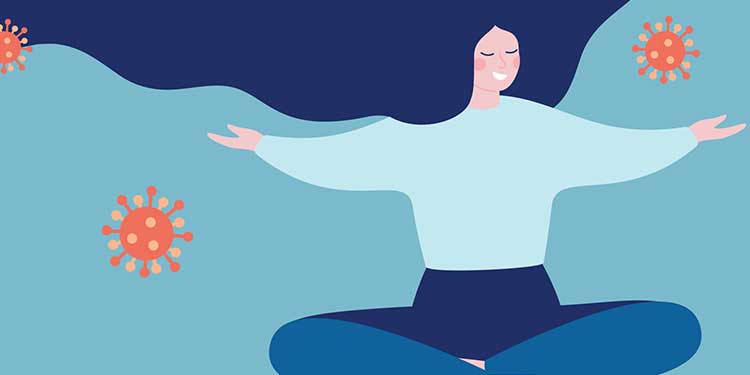Mumbai: A new four-country study by Wunderman Thompson uncovers the emerging landscape of post-pandemic health around Asia Pacific.
The report – titled Well: APAC – Taking the Pulse of the Region’s Health– reveals that 45% say they are physically healthier than before the pandemic and 71% declare physical health “very much” a priority. However,their mental health has taken a beating.
A quarter of the region is struggling with anxiety and/or depression. More alarmingly, 39% of respondents say they have considered suicide at some point in the past year, even if fleetingly, with 16% saying they think of it once or twice a week.

“The pandemic has made health a priority for all. Many are investing more time and money into eating better, working out and generally keeping their bodies healthy to better fight a deadly virus,” said Malati Afridi, report co-author and Chief Experience Officer for Wunderman Thompson Singapore. “However, things that can be harder for individuals to control, such as financial stress and relationship tensions, are taking a toll on mental and therefore overall health.”
The findings are based on an online survey of 4,000 people aged 18-70+ in China, India, Japan and Singapore conducted between February and April 2021.

The report explores the mental-physical connection, with 45% of respondents saying being mentally down makes them less productive and 40% saying they exercise less. It also explores the domino effect on family and society: Respondents who are mentally down say they are also more likely to feel reclusive and be uncommunicative at work, and 20% sayit makes them feel violent.
The reality is that life in a pandemic is hard, with this sentiment translating to the reports data with an increase of vices and unhealthy behaviours as coping mechanisms. To cope, 19% of respondents are smoking more, 21% are drinking more alcohol and 73% are spending more time on screens. Respondents say these activities make them feel good and/or are a social lubricant.
Well: APAC – Taking the Pulse of the Region’s Health -examines health behaviours, attitudes and triggers across physical, mental, relational, and financial health and how each impacts the other. It is the second report in the Well Series after the release in July of Well: Singapore.
“As the pandemic continues to surge and dip around the world, we hope these insights will help government, businesses, health care providers and health brands understand constituents and consumers at a time where health is bothtop of mind and under threat,” said Chen May Yee, report co-author and APAC Director for Wunderman Thompson Intelligence.
Download the full report here.
Key Findings
APAC Overall Score
- The APAC region scores 6.6 on a scale of 1-10 for overall health.
- Respondents from Indiareport feeling the healthiest at 7.6, followed by China (7.2), Singapore (6.1) and Japan (5.3).
Physical
Compared to before the pandemic, the majority of respondents (69%) are more motivated than ever to protect their health. 57% are spending more money on doing so and 57% are spending more time on healthy behaviours.
But at the same time,43% are working longer hours, 54% report being more sedentary and 73% are spending more time on screens. Not surprisingly, 40% say they are not getting enough sleep. To cope, 19% are smoking more and 21% are drinking more alcohol.
Motivations vary across generations. Those with young families want to stay healthy for their families’ sake, while those over 55 want to be healthy so they can stay independent. Gen Z is more likely than other age groups to want to lost weight and look good.
Mental
A quarter in APAC say they are anxious and/or depressed. The two top stressors are financial (53%) and work (48%) though conflicts with partners/spouses also feature high at 24%.
Indians report feeling the most financial stress and Japanese the least. However, Japanese lead in depression. Yet despite such struggles, more than half overall say they can’t talk to their families about mental health.
Relationships
Almost half – 48% – say family stress has gone up in the past year, with families with children under 18 reporting more conflicts. Interestingly, 28% reported increased libido, compared to 17% who reported feeling less sexual desire.
Inequities
Women are feeling less healthy and doing less to take care of their mental health than men. Students and the unemployed are feeling less healthy overall than the employed and the retired.
In contrast, those with more education and income are feeling healthier and more proactive in managing their health.
Apps and AI
China and India are the biggest app adopters. Indians are also most likely to use blood pressure apps at 39% (versus 24.4% overall) and for fitness at 40.4% (versus 27.9% overall).
Chinese are ahead in using sleep apps with 40.3% of Chinese respondents saying they use them versus 21.7% overall.

















